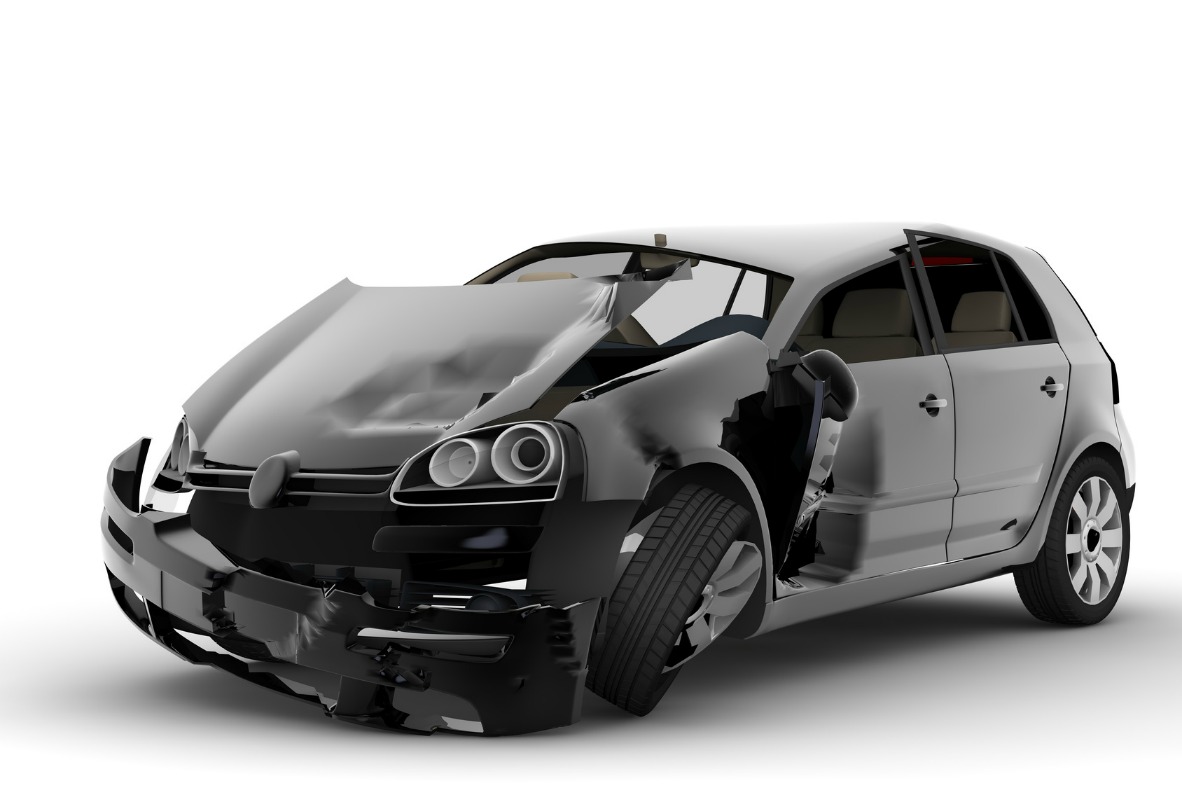We follow the The Association of British Insurers (ABI) Code of Practice for the Categorisation of Motor Vehicle Salvage provides a structured framework for classifying vehicles based on the extent of damage they’ve sustained. This classification ensures that vehicles are appropriately processed post-incident, prioritising public safety and transparency, and placed in their appropriate salvage categories. However, recording total loss vehicles is not a legal requirement, so here’s our guide to help you navigate the world of salvage and categorisations:
Category A (Scrap)
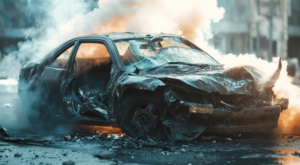
Vehicles placed in salvage Category A are those that have suffered such extensive damage that there is no scenario in which repairs would be safe, feasible, or economically viable. The key reasons for assigning Category A include:
- Safety and Protection: Ensuring that severely damaged or contaminated vehicles, such as those severely burned, chemically contaminated, or extensively compromised by flood water, never re-enter the market in any form.
- Legal Compliance: These vehicles must be crushed entirely, with no parts removed, to prevent any unsafe components from returning to circulation, eliminating risks to public safety.
Category B (Break)
Category B covers vehicles that are extensively damaged and unsuitable for repair, but unlike Category A, contain parts that can safely and responsibly be reused. Reasons for categorising a vehicle under Category B include:
- Responsible Recycling: Allowing undamaged components to be safely recycled or reused, reducing waste, and supporting environmental sustainability.
- Economic Viability: Maximising residual economic value through salvageable parts without compromising safety, while clearly identifying the remaining structure as waste that must be crushed.
- Environmental Protection: Ensuring the disposal of the vehicle shell as waste, adhering to stringent environmental regulations and waste control standards.
Category S (Repairable Structural)
Vehicles placed in Category S have structural damage but are technically repairable. The insurer (or self-insured owner) has chosen not to carry out the repairs themselves. Reasons for assigning Category S include:
- Transparency and Safety: Clearly identifying vehicles that, while repairable, have had significant structural damage that may affect crashworthiness if improperly repaired.
- Consumer Protection: Alerting future buyers or repairers to the severity and nature of damage, ensuring informed decisions on purchasing and safe repairs.
- Repair Methodology: Highlighting that structural repairs must be conducted following manufacturer-approved or industry-recognised repair methods to ensure the vehicle’s safety integrity.
Category N (Repairable Non-Structural)
Vehicles assigned to Category N are those with non-structural damage that insurers or self-insured owners have opted not to repair, but which remain suitable for safe and technically feasible repairs. Reasons for this categorisation include:
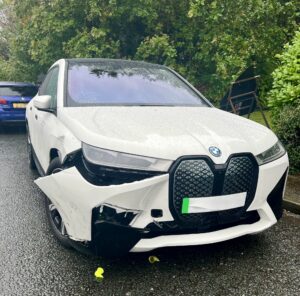 Economic Decision: Vehicles might be economically repairable, but insurers deem the cost of repair against the vehicle’s value to be unviable, often due to labour and parts costs, rather than severity of damage.
Economic Decision: Vehicles might be economically repairable, but insurers deem the cost of repair against the vehicle’s value to be unviable, often due to labour and parts costs, rather than severity of damage.- Clarity in Damage Severity: Distinguishing vehicles that have cosmetic, electrical, or superficial damage from those with structural integrity issues.
- Safe Re-entry: Allowing these vehicles to safely re-enter circulation, clearly labelled to inform future buyers that non-structural repairs are necessary, thus ensuring transparency.
Categorisation
This is our thought process through the decision-making process:
- Question 1: Is the damage sufficiently severe to warrant application of this code? Vehicles with minimal or no damage, including stolen recovered vehicles, may fall outside the code’s scope.
- Question 2: Is the salvage vehicle suitable for repair? This critical decision ensures that unsafe vehicles are prevented from returning to the road. Factors include the availability of manufacturer or recognised repair methods and the potential risk of vehicles being used for illicit purposes, such as sourcing parts for stolen vehicles.
- Question 3: Has the salvage vehicle sustained structural damage? Structural damage pertains to specific areas of the vehicle’s construction. If a vehicle is deemed repairable but has damage within these structural areas, it is classified as Category S (Structural).
- Question 4: Should any parts be removed? This consideration addresses scenarios where the entire vehicle must be crushed without parts removal, such as cases involving severe fire damage, chemical contamination, or police requests.
By following this structured methodology, we ensure that vehicles are categorised consistently and safely, reflecting the severity and nature of their damage.
Are All Vehicles Categorised?
Certain organisations and scenarios result in vehicles not being recorded on the Motor Insurance Anti-Fraud and Theft Register (MIAFTR). These typically include self-insured fleet operators, such as leasing or logistics companies, that manage losses internally, accident management companies operating independently of mainstream insurance processes, and public sector bodies including police, military, or NHS vehicles, which often dispose of vehicles internally.
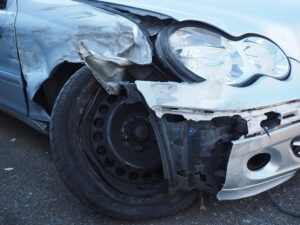
Additionally, specialist insurers or brokers who are not members of the Association of British Insurers (ABI) may also not consistently use MIAFTR. Finally, vehicles damaged or written off outside the UK and subsequently imported are generally not registered on the system, potentially leading to reduced transparency regarding their history.
Therefore it is important to note that not all written-off vehicles will appear total loss registers, such as HPI or even the more comprehensive Motorspecs. Similarly an expensive vehicle with considerable damage, which would have been written off if the value weren’t so high, can be extensively repaired without appearing on any records.
How Then Can We Spot A Damaged Repaired Vehicle?
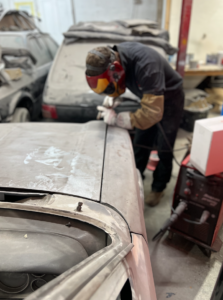 We would always recommend an inspection of a vehicle by a qualified expert prior to purchase, who will be able to establish whether the vehicle has sustained previous accident damage and subsequent repairs. Many damaged repaired vehicle that we examine are not listed on the registers or when they are, they may be on the wrong category, typically a category B that should not be repaired, listed as an S or N to allow unscrupulous repairers to perform unsafe repairs and return the cars to the unsuspecting public.
We would always recommend an inspection of a vehicle by a qualified expert prior to purchase, who will be able to establish whether the vehicle has sustained previous accident damage and subsequent repairs. Many damaged repaired vehicle that we examine are not listed on the registers or when they are, they may be on the wrong category, typically a category B that should not be repaired, listed as an S or N to allow unscrupulous repairers to perform unsafe repairs and return the cars to the unsuspecting public.

